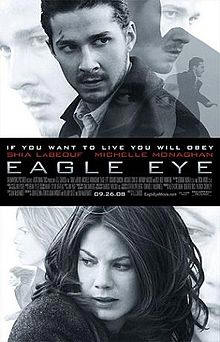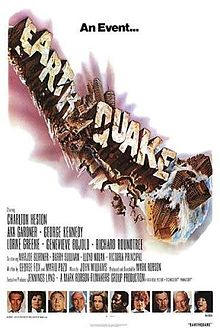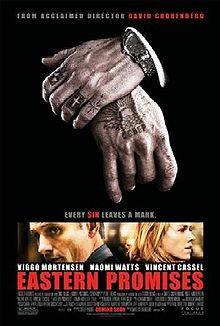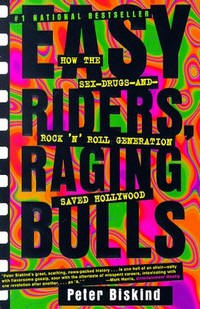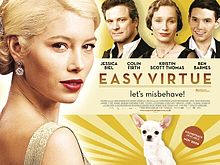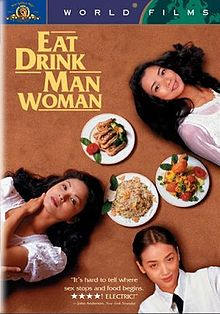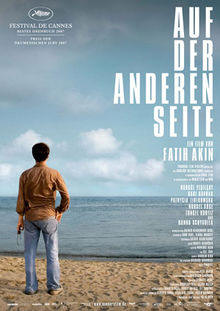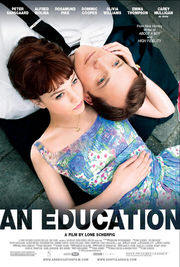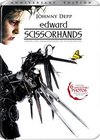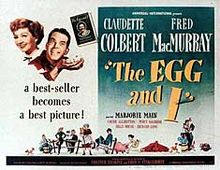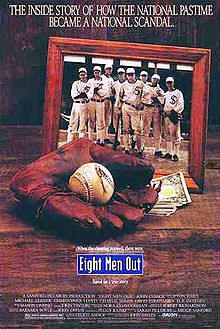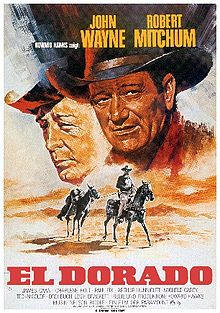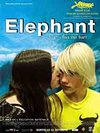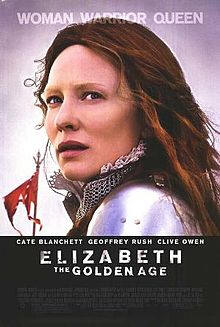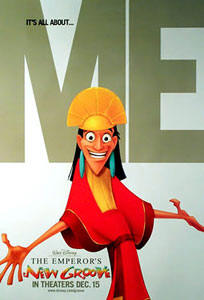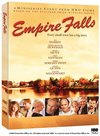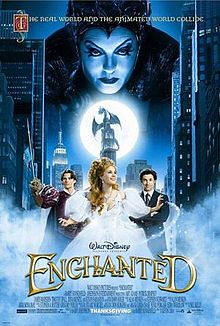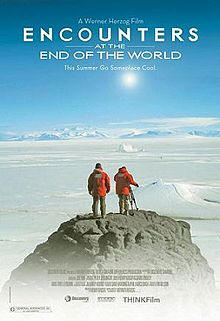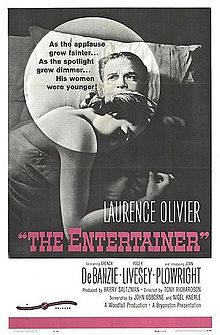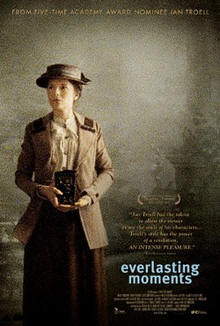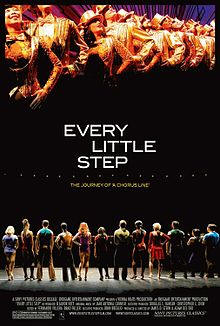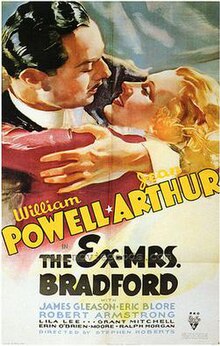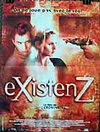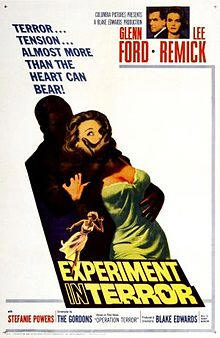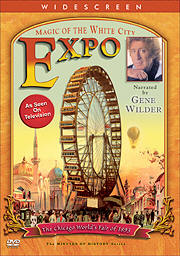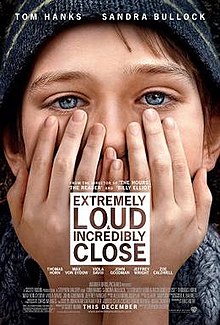|
Movies we've seen © 2004-2013 by John Varley; all rights reserved |
E
|
Eagle Eye (2008) One of the things I hate most in the movies is when someone takes a good idea and ruins it. This movie has an intriguing premise, though it is not new, concerning just how much surveillance of all types there now is in the world. We are being watched, and the people watching don’t always have our best interests in mind. It is my understanding that there is now no public place you can stand in the city of London where you are not being observed by at least one camera. It’s to fight crime, they say, but it sure can be used to do other things. There was a good book and movie as far back as the early ‘70s, The Anderson Tapes, that explored this idea. The book was simply a compilation of audio and videotape transcripts made by various agencies that showed in great detail the planning and execution of a big robbery of an entire apartment building … and none of the tapes had anything to do with the heist! It was other people in the building who were being watched, often illegally. It was a bold idea, and the movie did a good job of it. Almost 40 years later we are being watched much more, and there is now electronic capability to act remotely on this information. So this movie starts well, with an unsuspecting ordinary guy being ingeniously framed as a terrorist by depositing money into his bank account and shipping guns and explosives to his apartment. Some mysterious force is driving him, and a woman, and others, to do things they don’t want to do, under threats of prison, the death of a loved one, or other means. (One very effective plot device is that every time our hero gets in trouble, someone shows up to rescue him with advice or other help … and we realize that this person is being maneuvered, too, and we’ll never know what pressure he or she is under.) This is good stuff, but it quickly begins to go wrong. Soon we are in a miasma of idiot plot, implausible or impossible action for action’s sake, the mysterious force doing things that are not only beyond belief but sometimes even laughable. So who’s doing all the stuff? Okay, SPOILER WARNING, but if you haven’t figured it out in the first 20 minutes, you just haven’t been paying attention. Does this ring a bell?
Or how about War Games, Demon Seed, The Terminator, or Colossus: The Forbin Project? Or if you want to get truly awful, I, Robot. It’s our old friend the renegade computer, doing what it deems is best in our own interest, which is this case is eliminating the presidential chain of command down to somebody it figures it can trust. By using a super-explosive during a joint session of Congress, triggered by a particular note played on a trumpet. (Say … haven’t I seen that idea before, too? Or something very like it. See Alfred Hitchcock’s The Man Who Knew Too Much for a lesson in how to make a scene like that work.) Like I say, this movie really pissed me off, because the bones of a good movie were all there, if only anyone had had the wit to hang some substantial meat on them. There were even some moments so over-the-top that I enjoyed them, and one particular sequence that was quite good: a chase through the baggage-handling bowels of a major airport, with pursuer and pursued being handled roughly in a giant game of chutes and ladders. Billy Bob Thornton is good in still another part of the plot that was badly handled and could have been good. It’s all so sad. IMDb.com Earthquake (1974) A pretty shaky story. IMDb.com Eastern Promises (2007) I met David Cronenberg in Toronto while I was working on Millennium and he was doing Dead Ringers. Both production companies were using the same screening room for dailies. He seemed nice enough, not what you’d imagine if you’d seen any of his films up to that point. He was an early explorer of the goo school of cinema. Things like exploding heads in Scanners, and all sorts of liquid fleshy goo in Videodrome and The Fly. I liked the latter, didn’t care for the first two. I’d forgotten that he made The Dead Zone, one of the better Stephen King adaptations. He didn’t really get my attention again until A History of Violence, which I thought was one of the best films of 2005. In that film he managed to avoid all the clichés of violent films, the slow motion, the lingering close-ups of gore. The violence was quick, deadly, no-nonsense, and believable. Hardly ever see that in a movie. In this new one, there is a harrowing fight in a sauna between two men in leather, wielding knives, and Viggo Mortensen, stark naked. This is no Psycho shower scene, though, where the slashing was just artfully implied, and yet, there was no thirsty lingering on the blood, either. It simply made your skin crawl. How vulnerable can you be? (This is the second fight we’ve seen recently where a naked man was involved, but Cronenberg didn’t Beowulf the naughty bits like Robert Zemeckis did.) This wasn’t quite as good as I’d hoped, though. It concerns the Russian Mafia in London, and you get the impression they could eat the Sicilian Mafia for breakfast, followed by the Cali Cartel lunch. A 14-year-old pregnant girl dies in childbirth, leaving behind a diary that the midwife who saved her baby keeps, and gets translated from the Russian. The most heartbreaking moments are hearing this girl tell her sad story, of how she thought she was being taken to London for a better life, singing in hotels. Right, honey, now spread your legs … these gangster animals use these girls with about as much regard as they use a roll of toilet paper. It gets very tense, but the revelation near the end wasn’t that big a surprise, and the film seemed to lose focus. I don’t demand a resolution, and certainly not a happy ending, but this one sort of left me hanging. IMDb.com Easy Rider (1969) They say that Captain America (AKA Wyatt, Peter Fonda) was based somehow on Roger McGuinn and Billy (Dennis Hopper) was based on our friend David Crosby, both from the original Byrds group. I can see that Croz at that time and Hopper had a certain resemblance. They also say that Wyatt was a play on Wyatt Earp, and Billy was William Bonney, AKA Billy the Kid. They say (and I believe) that when they smoked a doobie in the movie, it really was that old Devil Weed that leads to harder stuff, mary-ja-wanna. They say (probably true) that most of the crew was high all the time, too, and sometimes they would just hand the camera to whoever was around. They say that most of the dialogue was improvised, that they had no real script, that they made it up as they went along. Terry Southern, listed as co-screenwriter, disputed that, and I don’t believe that Jack Nicholson’s UFO rap by the campfire was improvised. My point is that “they” say a lot of things about this already legendary movie, and I’m not going to try to deal with even a fraction of them. What I wanted to know was, how well does it hold up? My feeling is that some of it is still pretty good, but a lot of it is showing its age. You have to remember just how incredibly revolutionary it was at the time. And I feel that most of that was simply the music. This was the first movie that used the actual music of the time, performed by the actual artists. Before this, when Hollywood was making a movie about those wild young “hippies” they hired some 70-year-old hack who wouldn’t have known an electric guitar from a wringer washing machine to write some “groovy” music suitable for half-naked hippie chicks to dance to, like zombies, totally self-involved. (Case in point: Skidoo.) It was way worse than disco. To hear our music coming out of the big screen … well, that was groovy, man. (Half the sentences in this film end with “man.”) But today … the music is as groovy as it ever was, but at least half the running time is these two (three, when Jack is briefly with them) truckin’ on down the road on those outlandish bikes, with music in the background. That got old for me about halfway through. Another thing we liked is that the flower power movement, as shown in the commune they drop in on, was depicted without being sensationalized. I visited a commune in New Mexico that looked exactly like that. … well, maybe not quite so clean, but they weren’t vegetarians and when you raise free-range chickens and goats, you’re gonna get a little dirt. The people and their children were clean, that’s the important point. Those scenes are still good, though quite nostalgic for me, now. I’ll bet only one out of a thousand people who tried to “get back to the earth” managed to stick it out for longer than one year. The third element was the hatred through what we now know as the Red States for longhairs. Hell, it was more than just there, but that’s where it was the most virulent. The scenes in the diner when all the rednecks were insulting the riders played very, very true. And the fact that their young daughters thought the riders were the coolest thing they’d ever seen, too! They say, and it’s been verified, that instead of bringing in some actors to play those parts, Hopper recruited some actual rednecks from their real-life habitat, guys who actually had been ragging the cast and crew. “Is that a boy or a girl, Jim-Bob?” “Don’t rightly know, Junior, but I’d fuck ‘em anyways!” One thing they got very right was the bad acid trip in the above-ground New Orleans cemetery. I had two bad trips in my brief flirtation with LSD, one merely unpleasant, one apocalyptic. I can report that the world seemed washed-out, dirty, out of balance, twisted like a fish-eye lens, overexposed like film left out in the sun. Nicholson is amazing here, and deserved this first Oscar nomination, out of twelve so far. Fonda and Hopper are good. There is a brief cameo of that murdering fuck Phil Spector, sitting in his Rolls-Royce buying cocaine off the guys. Overall, it is not as good as I remembered it. There is an historical feel to it now, an artifact dug up from an earlier era. But the music still rocks. IMDb.com Easy Riders, Raging Bulls: How the Sex, Drugs and Rock 'N' Roll Generation Saved Hollywood (2003) A nice little chronicle of that magic moment, from the late '60s to the late '70s, between the collapse of the old studio system and the rise of the new order, when everybody was able to try just about anything. The '60s were littered with mega-flops, studios were on the brink of bankruptcy, back lots were sold off and re-developed, sound stages gathered dust. Then the "indies" showed the studios how it could be done, mainly by appealing to the youth market. Hard to remember now, but they didn’t used to be very important, except at the drive-ins. Now, of course, that’s the only market that matters. And, when you think about it, what studios largely produce these days are $100,000,000 B-movies, suitable for the drive-in crowd. Once Jaws and Star Wars, which are B-movies, opened, it was all over. That, and the fact that cocaine led so many of the new crowd into creative catastrophe. But for one brief shining moment that was known as Malibu, you could find them all at Michael and Julia Phillips’ beach house, movie nerds talking movies. IMDb.com Easy Virtue (2008) It’s Noel Coward, so you know there will be witty lines, and you can be pretty sure it will deal with the British upper classes. (Though he did a really ripping job dealing with ordinary Brits in his excellent wartime movie, In Which We Serve. Writer, co-director—with David Lean—and star!) This one is not a lot of fun, for me, anyway. I have a deeply-grained antipathy to those born to wealth and position: the upper classes. The only way I can really enjoy material about them is if they are shown to be the twits I believe them to be, as in The Importance of Being Earnest. Here, Coward doesn’t so much mock them as lay them open with a scalpel on a dissecting table. This is okay, but not fun. Mostly, I wish the upper classes would just go away. The useless son of a family who has done nothing more significant for the last eighteen generations than riding to hounds and investing their money does something unthinkable: He impulsively marries a woman who has just won the Grand Prix de Monaco. Even worse, she’s an American. The poor woman was never told just how rich this useless man is, and is shocked to see the gigantic pile of rock his family lives in. The one exception to the family tradition of utter uselessness is the father, who went off to the Great War at the head of a platoon of local volunteers and came back alone, the only survivor. It has shattered him, unmanned him, and he is the only person in the household I liked, other than the butler. The mother is a nightmare of privilege and entitlement. The two daughters are impossible. The American girl tries her best, but it’s hopeless, especially when it is learned that she helped her cancer-ridden first husband to die. The useless son abandons her. But there is a happy ending, at least for the only two people in the story who deserve one. Flee, father and race car driver! Flee as fast as you can, and never look back! IMDb.com Eat Drink Man Woman (Taiwan, 1994) This is a literally delicious movie. Don’t watch it, as I did, just after you’ve eaten a can of beefaroni. Don’t watch it when you’re hungry, either. In fact, when is a good time to watch it? Maybe after a Thanksgiving feast. It’s about an aging Chinese master chef and his three grown daughters who still live at home, and it is full of wonderful food. I wanted to taste it all. The story and the acting are great, too. But it’s worth it all just for the food. IMDb.com Echo Park (1986) If you've read my epic account of our walk on Sunset Boulevard, you'll know that Echo Park is one of our favorite neighborhoods. It's an old place, for LA. It was the original center of the film industry; Mack Sennett's Keystone Studio was there when the neighborhood was called Edendale. In the '30s it was known as Red Hill because it was full of political radicals. I lived there in the '60s, and so did Tom Waits and Frank Zappa. I returned to it in the '70s to see it had become a very bad neighborhood, and now it is on the rise again, full of what you might call Bohemian types. I saw this film when it was new and remember liking it. So I rented it ... and either it doesn't hold up, or my tastes have changed, because I didn't see much there. It's episodic and rather pointless. The script could have used some tightening, and though I liked Tom Hulce's performance, the other parts weren't very interesting. And we didn't even get to see very much of Echo Park. There were some interesting trivial things about it, though. This was Hulce's first movie after his Oscar nomination for Amadeus, for which I wish he could have shared the award with F. Murray Abraham. I guess it was never in the cards that either of them would be giant movie stars, with Hulce's goofy face and Abraham's terminal case of acne, but they are both very good. Cheech Marin is here, billed as Richard Marin. Susan Dey is halfway between The Partridge Family and L.A. Law. All through the movie I kept wondering where I'd seen the woman playing the receptionist at the gym. The reason I couldn't place her is that I'd never seen her out of character: She is Cassandra Peterson, better known as Elvira, Mistress of the Dark. I've always had a soft spot in my heart for Elvira. She's neat. And last but not least, there is Timothy Carey, a seriously scary man both in the parts he played and, apparently, in real life. He was more than a little bit crazy. He was excellent in two early Kubrick films: The Killing, and Paths of Glory. Coppola wanted to cast him in the Godfather films, but he was too erratic and frightening. Same with Tarantino. He's had a cult following since his death 12 years ago. Take a look at his picture at the IMDb. Would you want to meet this guy in a dark alley? IMDb.com Ed Wood (1994) Probably my favorite Tim Burton movie. It’s clearly a labor of love, about the weirdest guy who ever directed in Hollywood, and until Mark Borchardt came along (see American Movie), the worst filmmaker ever to actually get a film distributed. IMDb.com The Edge of Heaven (Auf der anderen Seite) (2007) An old Turkish reprobate, living in Germany. A Turkish prostitute frequented by the old man. The old man’s son. The prostitute’s estranged daughter, living in Turkey. A German lesbian student. The student’s mother. The lives of these six people intertwine in unexpected and, frankly, some rather unlikely ways. But since this is a story told in the style of Crash and Babel, it doesn’t really matter. We follow one thread to its end, then back up and follow another, seeing a few scenes from a different perspective. In a thriller or a mystery it would matter that mere chance brings these people so close, so many times, and yet leaves them mostly unaware of each other and the role each actually plays in the lives of the others. Here, it’s just fine, and we savor the sense of irony each missed contact brings. There is much story here, but not in the sense of a plot, where things are brought to a resolution of some kind. This is more like real life, where there is only one resolution, and that is death. Two characters will find resolution—and the director tells you up front who they are, leaving you to wonder fearfully how they will meet their end, and that works just fine, too. But for the others, life goes on, and the mere idea of resolution is just one more lie in the bag of tricks of those professional liars, the writers of fiction. (Like myself.) This is an extremely good film, mostly starring people you have never heard of unless you see a lot of Turkish cinema. The one big name is Hanna Schygulla, who I have seen in several other movies. She was most frequently in the films of Werner Fassbinder, perhaps best known from The Marriage of Maria Braun. She was quite the sexpot. She’s 64 here, no longer glamorous, but quite powerful in a new way. I recommend this film highly. On the DVD there is also an hour-long “Making Of” feature that is quite good. IMDb.com An Education (2009) Nominated for Best Picture of 2009, and deservedly so. It is based on an autobiographical memoir by Lynn Barber, and details her relationship at age 16 with a man of 35. It is 1961, some years before feminism and the rockin’ 60s, and she is bored to death with school, home life, and practically everything else. You know it will end badly, but the great thing about this film is that it is also clear that she has gained a lot from the encounter. Far from destroying her—as it well could have, and as such an ill-advised affair often does—it opens new horizons for her, far from her suburban existence. The cast is great, but this is a movie that succeeds or fails on the strength of its lead, Carey Mulligan, who is one of the brightest new stars I’ve seen in a long time, and also Oscar-nominated. I expect great things from her. IMDb.com Edward Scissorhands (1990) I’m so happy we have Johnny Depp. He could easily have been a romantic leading man, phoning in his roles. Instead, he consistently chooses oddball projects like this one. IMDb.com The Egg and I (1947) This was a very popular book written by Betty MacDonald, detailing her (apparently partly fictionalized) experiences as a city girl who follows her slightly demented husband into the chicken farming business. Comic situations abound. Fred MacMurray and Claudette Colbert are quite good. IMDb.com The Eiger Sanction (1975). It’s fun to read a book and then see the movie a day later. Even if you’ve done both before. But it’s been 30 years in this case, so it’s all new to me! This was Clint Eastwood’s 4th directorial outing, and shows what he demonstrated in Mystic River, that he is very dedicated to the books he buys. Small changes were made, but only one seemed to make no sense. The book itself is fabulously over the top, never meant to be believed, and works mainly because it is so outrageous, bitingly satiric, and sheer fun. The movie captures as much of that as it can, and uses a great deal of dialogue straight from the book. But when the book gets into the mountain, the fearsome Eiger, it is dead serious, and wonderfully vivid. Eastwood worked very, very hard to match this and gets some stunning shots, mainly by doing his own pretty perilous stunts (a stunt climber was killed by a falling boulder, in a spot where Clint had been standing only minutes before). This was before you could cheat with CGI to attain vertiginous perspectives easily and without risk, and as such, the movie is probably the best fiction ever made about mountain climbing. But the technology of the time was not good enough to reproduce the awesome power of the storm on the mountain—hanging your ass out there was dangerous enough without wind and fog machines and freezing sleet—and time constraints meant that you couldn’t really convey the long, wearisome, and ultimately soul-killing slowness and fatigue that are shown so powerfully in the book. Still, it’s a fun movie to watch, and a terrific effort. IMDb.com Eight Men Out (1988) Baseball’s blackest moment was in 1919, when players on the Chicago White Sox took money to throw the World Series. This movie lays it all out as it happened, game by game, and does a swell job of it. Without in any way apologizing for the conduct of the players, it should be pointed out (and the movie does so) that the team owner, Charles “The Other Cocksucker” Comiskey, treated his players like slaves, and refused to pay them what they were worth. (This was just what all owners did until the era of free agency, but still.) He actually did reward his team with flat champagne after winning the World Series, in lieu of money. It was said that his team was called the Black Sox even before the scandal because he refused to pay to launder their uniforms. He promised Eddie Cicotte a $10,000 bonus if he won 30 games. Eddie won 29, and pointed out that Comiskey benched him for weeks to prepare him for the series. Tough titty, Eddie. Twenty-nine ain’t thirty. God, if any owner in baseball today heard of a pitcher who won 29 games in a season you know what he’d say? “Drop your pants, dude, because I’m giving you fifty million dollars and throwing in a free blowjob.” The eight accused players were tried for conspiracy and acquitted by a Chicago jury, but when the case came before the newly crowned Commissioner of Baseball (for life!), Judge Kennesaw Mountain “Cocksucker” Landis, he ruled that they were banned from Major League baseball for life. Now, at least 6 of the players deserved this, but two, Buck Weaver and Shoeless Joe Jackson, almost certainly did not. They didn’t take money, and they didn’t blow any plays. But Landis said that any player who had knowledge of wrongdoing and didn’t come forward should be punished, too. Now, that’s a good rule, but it wasn’t in place when these events happened and I, for one, sympathize with their dilemma. All this was set up by a piece-of-shit New York mobster named Arnold Rothstein. Naturally, he got away with no punishment at all … at least not then. Nine years later he was shot and killed. He is currently into his eighty-first year of an eternal sentence in Hell, where he is Adolf Hitler’s permanent butt boy. His cell is right next to the one where sweethearts Comiskey and Landis are forced to use baseball bats on each other in a way that is too shocking to detail here. (Hint: As Billy Bob Thornton shouted in Bad Santa, "You won’t shit right for a week!”) This is the second baseball movie starring Charlie Sheen that we’ve seen recently, the other being Major League. He looked pretty good as a pitcher in that one, and I just learned that it’s because he was a pitcher in high school with a fastball in the high 80s. That’s not major league material, but it’s good enough to fan most college hitters. A few details: There a couple of shots where a fielder at the end of an inning tosses his glove over his shoulder before jogging into the dugout. I thought that was strange. There was a note about it at the IMDb. It seems that, until the ‘20s, it was common practice to share gloves! I was stunned to hear that. Couldn’t they afford their own gloves? Would you want to share a glove? Also, Shoeless Joe always seems to have a golf ball in his cheek. I remember when I was a kid, most major leaguers chewed tobacco. I’d be surprised if any of them do now; you see them chewing on sunflower seeds and spitting out the hulls. I don’t know about you, but though smoking tobacco is a disgusting habit, chewing it is about as nasty as habits get. I’m glad to see the last of it, even if sunflower seeds sound like a sissy chew. One of the best things about the movie is the two-man Greek chorus of sportswriters, Ring Lardner and Hugh Fullerton, played by the writer/director, John Sayles, and Chicago legend Studs Terkel. If you are anything near my age, you’ll think of Mutt and Jeff. Sayles is 6’4” and Terkel was a little squirt. Lee commented that Sayles looked a lot like Ring Lardner. I didn’t know what he looked like so I looked him up, and the resemblance is uncanny. They could be brothers. Hell, they could be twin brothers. IMDb.com Elephant (2003) A very interesting but maddening film. Gus van Sant has made a documentary-like portrait of one day at a high school that ends very much like Columbine. His point, and it’s a good one, is that it was an ordinary day, and we see ten or twelve students of different types. Who will live and who will die? There is no rhyme or reason behind any of it; some got lucky and some didn’t. They ran into a pair of monsters who looked like human beings, and whose idea of morality was based on video games. Not that van Sant blames video games for the violence. His point is that we don’t know why they did it, and we’ll never know. He offers no answers, and that has pissed off some reviewers. But what the hell did they expect? Is it guns? Violent movies and television? I think it was caused by something simpler: a lack of a soul. But I say it is maddening because of the endless, interminable tracking shots behind people who are doing nothing but walking from point A to point B. And walking, and walking, and walking ... Still, it makes you feel detached, which is what he wants, like a floating angel, a disinterested observer. SPOILER WARNING And when the killing begins, that’s when it hits you in the stomach. Not because he dwells on it; exactly the opposite. The camera never moves to follow the action. Someone is hit, and they fall out of frame and are never seen again. The randomness of it makes you sick. And van Sant even toys with your expectations, the ones you have because you’ve seen a thousand movies with a hero, and this one doesn’t have a hero. This muscular black student walks the halls, and something in his body language makes you just know he’s going to take care of business, he’s going to stop these monsters ... but he doesn’t. He never even gets to say a word. Bang, and he’s dead. This is far from a total recommendation, but from the length of my review you can tell that it fascinated me, and it’s only 80 minutes long. I’d suggest you try it. IMDb.com El Dorado (1966) We were getting near the end of the popularity of that durable genre film, the western. We were only a few years from The Wild Bunch and some others that gave a newer and more realistic look at what the West was really like. This is one of the last gasps of the traditional view, where it mattered how fast you were on the draw (most shooting in the real West was in the back, or from a safe distance), the difference between good guys and bad guys was clear and easy to see, where all saloons had tinkly pianos playing all the time and all the whores—sorry, Miss Kitty, dance hall girls—were gorgeous. The only difference here is that the heroes, John Wayne and Robert Mitchum, are showing their age, unlike the traditional cowboy heroes of the B-movie western like Tom Mix, Hoot Gibson, Bob Steele, and … well, John Wayne. This somehow makes it all better to me, and I always liked the Duke better as an older actor. The dude had it down, every nuance of the tough, smart, good man. This movie has basically the same plot as the classic Rio Bravo, with Mitchum instead of Dean Martin as the drunk. Both were directed by Howard Hawks. Costarring are a very young James Caan as “Mississippi,” and Ed Asner as the bad guy who wants to run the good family out of town. Pure cliché, but I enjoyed it. IMDb.com Elf (2003) is a wonderful idea: a man raised by elves at the North Pole, until he grows too large and sets out to discover his real father (James Caan). Bob Newhart and Ed Asner as Santa do a good job, but the movies lives or dies with Will Farrell, who is delightfully wide-eyed, apologizing when he’s hit by a car while jaywalking, or falling afoul of the world’s nastiest kids’ book author in the person of Peter Dinklage, the dwarf from The Station Agent. However ... it loses its way toward the end, getting so sweet that a diabetic, like me, begins to think of taking a double dose of glucophage or maybe mainlining a bit of insulin. But no need. IMDb.com Elizabeth: The Golden Age (2007) One of the all-time most gorgeous films ever, in terms of costumes (it won the Oscar) and settings and photography. And that, plus Cate Blanchett’s performance (always, it seems), are the only good things I can say about it. Let’s not even get into the myriad historical inaccuracies here; it’s not meant to be educational (and yet, I do have to mention that, far from defeating the Spanish Armada virtually single-handed, Sir Walter Raleigh—such a stupid git!—was ashore the whole time). It’s meant to be drama, and for me it failed at all levels in that intention. Ponderously slow-paced, with turgid dialogue, and mournful music … everyone moves like they were in a church processional most of the time. There are long, long pauses between most lines, which, when they come, are laughably trite. Where is the meat, the passion of the first Elizabeth which, though just as inaccurate, at least gave a sense of the times and the court intrigues. I didn’t care at all about anything that happened. But my, my, my, it is glorious to look at. IMDb.com Elizabeth I (2005) Is there a better actress working in the movies and television today than Ilyena Vasilievna Mironov? What's that? Never heard of her? Try Helen Mirren. We were stunned by her presence in The Queen, for which she is certain to win an Oscar nomination, and which she stands an extremely good chance of winning, this time. (She was nominated for Gosford Park and The Madness of King George.) I really hope she does win, if only for the joy of seeing someone stand up there who has been quoted about the Academy Awards thus: "It's the creme-de-la-creme of bullshit." I'm sure she will be polite and humble in the face of the great honor, but still ... Elizabeth Tudor and Elizabeth Saxe-Coburg-Gotha could not be more different, and yet she totally inhabits both roles. This four-hour series begins with the Virgin Queen in her forties, since someone Mirren's age can't play a child queen. It covers familiar territory, but then, it's history, what are you going to do? (Well, once more invent a meeting between Elizabeth and Mary, as in Mary, Queen of Scots with Glenda Jackson and Vanessa Redgrave, for one thing. Writers of historical fiction cannot seem to resist this particular fiction.) This series concentrates on her unrequited loves, but doesn't stint on her role in governing. She is simply one of the most fascinating figures in all English history, in all history of any kind, and of historical women only Joan of Arc could rival her, and Joan was nutty as a cacahouète du gâteau. The first part deals with Elizabeth and Leicester, played very well by Jeremy Irons, and the second with Elizabeth and Essex, who as written by Nigel Williams and played by Hugh Dancy, is really reprehensible and a fool. But it's Mirren's show, and she brings Elizabeth to life better than anyone ever has, and considering how many great actresses have played her, that's saying something. She won an Emmy for it. I was wondering where in Merry Olde England they found the fantastic, huge sets. The palaces ran on and on, and were used to the fullest in long steadicam shots, and the outdoor scenes were stunning and looked authentic. Well, it seems they found them in the Merry Olde Town of Vilnius. Vilnius ... er ... Lithuania. Actually they built them there, almost certainly because labor is cheap in the former SSRs. Such a job! And more well-deserved Emmys. Ditto the costumes, especially Mirren's. As I pointed out to Lee, in some of those dresses you had to be sure of hitting a doorway dead-center, or your elaborate shoulder and head pieces would bump the jambs in a rather undignified way. IMDb.com Ella Enchanted (2004) A thoroughly charming movie aimed at teenage or younger girls but enjoyable by anybody who isn’t a grinch. It uses the techniques of Shrek, mixing fairy tale tropes with modern references to good effect. First time we’ve seen Anne Hathaway, since we didn’t see either of The Princess Diaries movies. Maybe we should. She’s very appealing, and I can see her paired with Julie Andrews. She’s just about that wholesome. I see she’s slated to play Jane Austen. Should be interesting. IMDb.com The Emperor’s Club (2002) Basically a re-make of Dead Poets Society. Which doesn’t mean it’s bad (see Mona Lisa Smile). Just not one I’ll want to see again and again. IMDb.com The Emperor's New Groove (2000) Saturday Night at the Toons! IMDb.com Empire Falls (2005) There are a lot of things I could say about this HBO miniseries, now available on video. The great cast. The Pulitzer Prize book it was based on, and how well the longer format fits a mostly quiet story like this. The big surprise near the end, that startled me and Lee. But what I kept coming back to, watching it, was growing up in small towns, and either leaving or sticking around. Miles is a guy who should have left. There’s a guy in Empire Falls, a cop, who says that he has never wanted to be anywhere else, not for one second. He knows Miles would rather have been almost anywhere else, but was trapped by circumstances as binding as those that kept George Bailey in Bedford Falls. He still dreams of getting away, but it’s really too late. Once you get set in a place like that, you probably lose your ability to really fit in anywhere else. The sad thing is, Miles will never really fit into Empire Falls, either. This story line resonates with me. I knew from an early age that the thing I wanted most in the world was to shake the dust of my dreary little hometown and go out and see the world. I’ve roamed ever since, and have been damn glad I did. I’ve only been back to that little town two or three times since, once for a high school reunion, and was amazed to see how happy the folks who stayed seem to be. I’m happy for them, but I know I made the right choice. I would have suffocated there, like Miles. Sorry, this is not much of a review, I know, but it all felt so personal to me. IMDb.com Employee of the Month (2004) What a mess of a movie. We gave up at the 1-hour point because we simply weren’t interested in what it seemed to be. Then I read a little of the very sparse reviews and found out it was not what it seemed. I collect movies about capers and cons and treasure the good ones. So we started it up again, and sure enough, there was a twist ending. In fact, there were about six twist endings, which is at least three too many. In fact, it was so muddled that they were still inserting scenes of what you didn’t see, what they withheld from you, while the end credits are rolling. The problem here: you’ve got to have the audience with you in the first act if they’re going to stick around for the surprises in the third act, and they didn’t do it. We were bored by these people. It was far too tedious. I don’t know a solution to this script problem, because their blandness was part of the trick ... but somehow they have to be made bland in an interesting way, if you know what I mean. Joe vs. the Volcano comes to mind, or Fight Club. IMDb.com Enchanted (2007) Saturday Night at the Toons! IMDb.com Encounters at the End of the World (2007) These days Werner Herzog seems to be doing almost as many documentaries as dramatic films. And, Werner being Werner, they tend to be about extreme places and/or obsessed—not to say crazy—people. You can’t get much more extreme than Antarctica. Did you know it’s one of the driest places on Earth? Less than two inches of precipitation per year in the interior, less than the Sahara. Of course, it just stays there except for glacial movements, so the ice is over a mile thick. It can get as cold as –128F (that’s cold enough to make dry ice!), and winds can blow at 200 mph. I can’t even imagine the wind-chill factor for that combination. Stepping out into it would be like diving into a pool of liquid nitrogen. Herzog said he had no interest in making yet another film about penguins, and we hardly see any, except one poor disoriented fellow that is wandering off toward the interior and certain death. What Herzog is most interested in is the sort of people who wind up down there in the most hostile environment on the surface of the planet. And they are an odd lot, from the scientists to the bulldozer driver. He stays only briefly at the teeming metropolis of McMurdo Station (pop. 1200, the largest—by far—town down there). I can’t blame him. The place is ugly as sin, like all polar towns I’ve ever seen pictures of. Mud, snow, no plants of any kind, ugly buildings, vehicles parked all over. People in places like that are so busy surviving they don’t have time for much else. But there is a bowling alley, a swimming pool, an ATM, and an ice cream machine that, when it breaks down, is a serious morale problem. Herzog takes us under the ice to see the weird things that live in the sea down there, and to the lip of the volcano Mount Erebus to look at the lava pool down below, and to the south pole itself, where the recorded high temperature is –8F. All in all, it’s an interesting trip. Not one I’d like to make, and that’s what a good documentary is all about, isn’t it? They do it so we don’t have to. IMDb.com End of Watch (2012) The first thing that has to be addressed is that there really are some movies that I’m glad I didn’t go see in the theater, that it was much better to have waited for the DVD. Usually it’s the other way. A huge spectacle looks better the wider it gets. A small drama works just as well on a wide screen or a 5-inch iPad (I guess; I don’t have a tablet and don’t plan to get one). But these days, some medium-sized movies like this one are just too damn much for me on the wide screen, and the reason is I wouldn’t be able to comprehend at least half of it. The writer-director’s original intention was to film this whole thing as “found footage,” a format that can work, but usually doesn’t. Luckily he came to his senses and made it as a mixture. Jake Gyllenhaal is an LAPD patrol cop who is making a movie for a film class he’s taking, and shooting stuff while he’s on the job. He has a regular camera and some tiny ones you can wear or install in various places around your “shop,” which is LAPD-speak for patrol car. Not many of the other cops he works with are thrilled with this, and in fact his captain tells him not to do it. But his partner, Michael Peña, is fine with it. (Have to mention here that Peña has just landed the dream role for Hispanic actors: Cesar Chavez! Good for you, Michael! He’s very, very good in this movie.) So we get a lot of footage that is extremely jerky, so bad that it might have been painful in the theater. We start right off with a pursuit, filmed in one take with the standard LAPD dash cam, and it’s a doozy, including a shoot-out at the end. Jake and Michael take down two bad guys. Then we cut to the locker room where Jake is introducing himself and showing off his cameras and such, this on the day when they both come back on duty after the review board deems the shoot to be righteous. (Damn well better be. Those assholes opened up on the cops with fully-automatic AKs, practically destroyed their shop before being taken down.) From there we bounce around a lot. Some of it is from the POV of the really, really nasty Mexican gang-bangers, who are at war with the Bloods whose neighborhood the beaners are moving into. Some of it is day-in-the-life of the two patrolmen, trying to do some good and stay alive in South Central. Some of it is their lives off duty. Michael’s wife (Natalie Martinez) has a baby. Jake courts and marries one of our favorite upcoming actresses, Anna Kendrick. There are some very fine action scenes. But there is a subtext that these two cops are getting in the way of the Sinaloa Cartel, which is moving north of the border with a level of violence we haven’t yet seen in El Norte, but which Mexicans have been enduring for decades because of our idiotic drug laws. The cartel puts out a hit on the two patrolmen … This is not a movie that is deeply into plot. The action scenes are crisp and exciting, and as disjointed as I imagine most real action is. But the real interest is the conversations that happen in the shop, just the two of them, horsing around, breaking each others’ balls, clearly loving each other like brothers. The dialogue is fantastically good. (The director said he wrote it all in six days!) The acting is superb. This is the best cop movie I’ve seen in a very long time. It has a feeling of reality that few movies achieve, and the found footage part of the equation is a big part of it. You could actually believe that this was just recorded off the cuff by two working blues. The violent scenes are extremely violent, and the language is about as rough as the real language in South Central, both in the shop and outside of it. Seldom does a noun float through the air without getting at least one “fucking” attached to it, and about half the nouns are “motherfucker.” Some sentences have four or even more variations of fuck in them. If blood or language upset you, stay far, far away from this. Otherwise, see it at once. I can hardly praise it enough. IMDb.com The Endurance (2000) An excellent documentary about the ill-fated voyage of Captain Shackleton to Antarctica, back when it was almost completely unexplored. It is almost impossible to believe, but after incredible hardships over the course of a year, including the loss of the Endurance, crushed by pack ice, he lost not one man. Best of all, he had a cameraman aboard, and much footage was taken until all the film was gone, and was brought back intact. But they ate all the dogs. Sad. IMDb.com Enduring Love (2004) This movie has an absolutely stunning opening, and then sort of petered out. A couple are having a picnic in an open field. Suddenly a hot air balloon hits the ground. A man falls out, the balloon starts up again, the man grabs a rope. There is a boy inside. Other people appear, and five of them wrestle the balloon to safety ... but then a wind rises, the boy accidentally turns on the gas, and the balloon rises again. Four of the men drop away in time, but one holds on too long. He dangles. He falls. We see his body, which is horrible, sitting upright but utterly destroyed. The man who was first on the scene is troubled, thinking if they had all held on the man would not have lost his life. Was he the first to let go? He begins to obsess about it. Then this is all complicated by one of the other would-be rescuers, who is a flat-out psychotic stalker. And I somehow can’t make the two things fit together. Is this an examination of our obligation to our fellow man, or a psychological thriller? The last part doesn’t work, because at any time the stalkee could have called the cops, or taken other steps. Too bad, because the movie had me going real well for the first hour. Oddly, the stalker is played by Rhys Ifans, who also starred in Danny Deckchair, about a guy who went on an adventure involving balloons. IMDb.com The Enforcer (1951) Today this would be an episode of "Law & Order" or "CSI." Not a particularly good one, either. It's hard to swallow, at first, that these cops and DAs would be utterly baffled by words like "contract" and "hit." I suppose all slang terms had to be new and mysterious sometime. And you have to keep reminding yourself how unsophisticated audiences were in those days about things like police procedure. Most of what they knew was wrong, fed to them by B movies like this and cheap tabloids. And I know we've become used to a much higher level of security in things like, for instance, transporting prisoners who are in danger of a mob "hit." But in the opening scenes we are told that Rico, who is turning yellow, has been the subject of three assassination attempts ("contracts," in that mysterious lingo of the bad guys!), we see him surrounded by cops ... and then bedded down for the night on a cot in the DAs office with a single guard who is nodding off and the window wide open. Can anybody say sniper? Ka-POW! "Ah, it's nothin', just a flesh wound!" says the wounded cop, valiantly holding his bloodless shoulder and in no pain at all. The story abounds in crap like this. I know, it was a different age ... but this was two years after White Heat, and had none of the psychotic edginess of that one. I figured out the mystery 15 minutes before Bogart did. Acting is bad, except for Zero Mostel. Much of the dialogue consists of somebody grabbing somebody else by the lapels. But there were some moments, particularly in the photography department. Still, there many better examples of film noir; try one of them instead of this. IMDb.com Enron: The Smartest Guys in the Room (2005) What a coincidence. This week "Kenny Boy" Lay and Jeffrey Skilling went on trial in Houston, and Lee and I watched this video, which at least gives me some idea of what the hell they were doing. That they were and are scum, that they cheated, lied, bribed, stole, and fucked old ladies and poor children is a given in my mind; what I wasn't too sure of was how they did it. This movie will give you chapter and verse. I don't usually watch horror movies, but I had to make an exception for this one. And as usual, the scariest horror movies are the ones that don't feature monsters with weeping sores on their pustulent faces, or wear hockey masks, or stomp the crap out of Tokyo. No, for my money, Hannibal Lector and Norman Bates are the scary SOBs, because they have two arms and two legs like the rest of us, faces that seem human-like, and can speak well. The monsters at Enron even dressed well. But there is nothing human inside of them. This movie is a bit like one of those old '50s flicks, Invasion of the Body Snatchers, maybe, except these guys weren't replaced by pod people, they never had a human soul in the first place. The key to the whole Ponzi scheme was deregulation of utilities, apparently. Once the Senior Bush took off the controls, the candy store was wide open for these looters. It took about fifteen years for the whole thing to unravel, as these things inevitably do, and before it came apart uncounted numbers of employees and stockholders had been impoverished at the same time the corporate buccaneers were unloading their own stock, which they knew to be worthless, making hundreds of millions of dollars off the backs of the workers and investors. So far as I know, they still have most of that money. Jeff Skilling has paid his lawyers a $26,000,000 retainer, and if they need more, he's got plenty. This is the guy who practically sobbed in his sincerity before Congressional committees, swearing he had no idea what was going on as he was quietly gutting pension and retirement funds and stuffing his off-shore bank account. And it keeps getting worse. Lee and I didn't live in California when the Enron boys looted the entire state in the phony power crisis that got Gray Davis booted from the governor's office and replaced him with a grinning, jut-jawed mannequin, but we and everyone else in the new Cahleefornia are still paying for it. There never was a power crisis in California. There was plenty of power, there is absolutely no question about that, but for the sole purpose of inflating their worthless stock Enron power traders deliberately shut down power plants and jacked up the price of the available power a thousand times. You think I'm kidding? See this movie. People died from this scam, my friends and neighbors. In a sane society Lay, Skilling, and several hundred others would be standing trial for first degree murder, and I couldn't be more serious. You could stand George W Bush beside them in the dock, too, for my money. So how is the trial going to come out? What will happen to these walking toxic waste dumps? Don't bet against them. We're all entitled to justice in this country, and rich men are entitled to more than the rest of us, plus bail, so Lay and Skilling are golfing around, free men. And $26 million buys a lot of justice. (Ask OJ Simpson, while he's teeing up.) Martha Stewart went to jail for diddling a few grand. These guys stole more money than that while brushing their teeth every morning, and they did it by taking it directly from the pockets of people who couldn't afford to lose it. They were obscenely rich, they are still filthy rich, and they will be fabulously rich even after they serve a year or two in jail and pay their mouthpieces. I wouldn't be a bit surprised if they got off scot-free. In conclusion, if you still think de-regulation and the drastic cutback of government controls and oversight is a good idea, I'm going to give you the Jeff Skilling, Ken Lay, Enron treatment. Just turn around, drop your pants, and bend over. This won't take long, and I'll even convince you it's good for you ... IMDb.com The Entertainer (1960) Tony Richardson was one of the hot young British directors in the late ‘50s and early ‘60s. He made one of my all-time favorite movies, Tom Jones, among many others. This is from a play by John Osborne and stars the great Lord Olivier as Archie Rice, who is usually described as an aging vaudevillian at the tail end of the age of vaudeville, but to my mind the traditional British music hall is quite a bit different than American vaudeville, and quite alien to us Yanks. That’s not really important, but I thought I’d mention it. Olivier is stunning here, as he usually is, but at least part of the attraction is seeing him step out of his usual gravitas to play a rubber-legged, smirking, heavily made-up song and dance man who is only really alive on the stage. He is very good at it; who knew? The film is also noteworthy for first movie roles for Alan Bates and Albert Finney, and a very early role for Joan Plowright, who Olivier married a year later, his third marriage, and one that lasted until his death. IMDb.com Envy (2004) The reviews of this one were so abysmal that we’d never have rented it if we weren’t subscribing to the Hollywood Video MVP program, where you get unlimited rentals for $10/month. If it sucks, you’ve only wasted the 30 minutes or so it take to decide it’s a turkey. (Movie freaks, check that one out!) So we were surprised to be laughing. Jack Black makes a spray that makes dog shit vanish. Ben Stiller misses his chance to invest. Black gets very, very rich, Ben gets very, very envious. Complication ensue. I’m not saying it’s great, or even that it is real good. Many opportunities are missed. (I kept waiting for all that missing shit to come back in some comic way, according to the little-known Newton’s Law of the Conservation of Excrement; i.e., shit can be created but never destroyed.) It gets pretty dumb in places. Still, I’ve bailed out of comedies that were a lot worse than this one. IMDb.com Eternal Sunshine of the Spotless Mind (2004) Just what I’ve come to expect from Charlie Kaufman, that is, a mind-stretching exercise in fractured reality. This is even better than Adaptation and Being John Malkovich. Jonathan Rosenbaum wrote in The Chicago Reader: “Only once in a blue moon does a screenwriter who isn't a director become known as an auteur. Plenty of distinctive movie writers have reputations as actors or as actor-directors, starting with such giants as D.W. Griffith, Charlie Chaplin, and Erich von Stroheim, but they're rarely celebrated for their writing. You have to go back to Robert Towne, who's done only a little directing, and Paddy Chayefsky, who never did anything but write and produce, to find auteurs known mainly as writers.” He’s right. I’d add Preston Sturges to the list, known for his scripts before he became director. You look at a movie written by Sturges, Chayefsky, or Kaufman, and you know it right away. SPOILER WARNING I’m not going to reveal the many plot entanglements that will be delightful for you to discover yourself, if you haven’t seen the movie. The premise: It is possible to selectively erase memories of people or events you no longer wish to remember. Joel finds that the woman he has loved and broken up with, Clementine, has done that. She no longer knows who he is. Enraged, he decides to have it done himself. One of the best lines: “Is there any danger of ... brain damage?” “Well, technically, the process is brain damage. About like a bad weekend drunk.” In the middle of the process (carried out by a crew of negligent technicians in Joel’s home), he changes his mind. His universe is vanishing, and he tries to retreat with his memories of Clementine into his childhood. But at last his memories are wiped. Then, each of them finds out what has happened, each of them hears the other one’s tape of all the things they hate about each other. Joel still wants to try again. Clementine points out that they know they are wrong for each other, they’ve already proved it. Their love is doomed to failure. Joel says, “Okay.” Clementine says, “Okay.” In other words love, even doomed love, is better than the alternative. IMDb.com Europa, Europa (Germany/France/Poland, 1990) You have to be reminded of The Pianist, the 2002 film by Roman Polanski. That was the true story of Wladyslaw Szpilman, a Polish Jew who, with a great deal of dumb luck, managed to survive the Holocaust without ever being sent to an extermination camp, largely by living like a cockroach in the walls and crawlspaces, to the extent that he was barely human at the end of his ordeal. Europa, Europa is the true story of Solomon Perel, a much younger man who also survived, with even more dumb luck. By dumb, I don't mean that either man was stupid. I mean that they were the playthings of fate, like leaves drifting along in the gutter toward the sewer. Some will survive, but most won't. And there is almost nothing they can do about it. Polanski's is the better film, because it dares to show the claustrophobia, helplessness, and just plain day-to-day boredom of being in hiding, totally dependent on the few honest Christians of the underground. Europa is more a "Perils of Pauline" thing, a bit melodramatic, with a lot of narrow, last-minute escapes. Solomon uses his wits as best he can, but he, too, is largely helpless. His moral dilemma is far greater, however. He begins as a Jew in Germany. When his house is invaded and his sister killed, he flees naked from the bathroom, and is forced to wear a Nazi coat complete with swastika to return home. Then he and his family flee to Poland, then he flees to Russia. For a while he is a good communist. Hey, he's 15, what does he know? He learns to be a chameleon, so that when the Germans invade he quickly becomes a Nazi, a Hitler-Jugend, at an exclusive school in Berlin. But he can never really be Aryan, because of that tiny bit of skin he lacks and which he must go to great lengths to conceal. (It's odd. I know it's that way in Europe, but in Texas, where I grew up, over 90% of the boys I saw in the locker room were circumcised, and we didn't have any Jews in that school.) And that pales, really, in comparison to the self-loathing he begins to feel. Who am I? What am I? I was reminded of Kurt Vonnegut's best book, Mother Night, in which a racist radio broadcaster is actually a spy for the Americans ... but does his racist job so well even his handlers don't trust him ... and he doesn't even really trust himself. Moral of the story: We must be careful what we pretend to be, because we may become what we pretend. IMDb.com Evan Almighty (2007) As is usually the case with a movie I’ve seen only once, I’m a little vague on the details about Bruce Almighty, the predecessor to this movie. As I recall, Jim Carrey wished he was God, and God took him up on the offer. God took a vacation, and left Carrey in charge. Chaos ensued. What I remember clearly, though, is that the movie was fun. Fun from beginning to end. Evan Almighty is fun, too … for about half its length. The animals assembling two by two: that was fun. Evan’s beard and hair growing: that was fun. Then it got ridiculous. Bruce could get away with a lot of stuff because … well, because he was God. People didn’t notice his miracles. Evan is just Noah, and when miracles happen around him people behave stupidly. I mean, would you calmly watch a pair of bears standing beside a pair of horses? When thousands of animals appeared miraculously in the Senate chambers, would you be pissed off that Evan has caused it, or awed and amazed? When even more animals gathered in a big field and started filing aboard this huge ship Evan had built, would you ridicule him? Me, I’d beat feet toward the ramp, because I’d have a sneaking suspicion that some serious water might be coming. I hate it when people behave stupidly or illogically. This movie could have been much more effective if, for instance, Evan had shared what was really happening with his wife and family, as Kevin Costner did in Field of Dreams. Evan’s increasingly silly attempts to cover up what’s happening to him and his refusal to simply speak up got very tiring. Then it all collapsed into a giant SFX flood that would have killed thousands and thousands of DC residents (not a bad thing, if they were all elected), and nothing at all is made of that. Final verdict: Stupid, a waste of your money. And get prepared for Leroy Almighty, where Chris Rock plays Moses. IMDb.com Evelyn (2002) There is now an entire genre of movies detailing the horrors of the Catholic church and the Catholic-influenced legal system in Ireland. This one describes a man’s struggle to get custody of his daughter and it is okay, with Pierce Brosnan trying hard to stretch himself beyond Bond, James Bond. But a better one is The Magdalene Sisters, which will absolutely boggle your mind. Hard to believe that the brutality and injustice of the Magdalene laundries persisted right up to 1996. IMDb.com Everlasting Moments (Maria Larssons eviga ögonblick) (Sweden, 2008) We follow a mother of five … no, wait, make that six … no wait, here’s another … well, the mother of a large and growing family, married to an abusive drunk, from 1907 to about 1920. They are very poor, but she has a camera she won in a lottery. She is befriended by the man in the photo shop where she goes to buy film, paper, developer, and other items needed by photographers in those days of glass plates and long exposures, and she discovers she has an eye for great shots. There are hardships, there is defiance on her part, there is real deprivation when the war starts. Eventually … well, I won’t go any further. It’s not a surprise, really, because this movie is like real life (was based on a real woman’s life), so there are no great dramatic resolutions. Things change, slowly or abruptly, as they do in life. This is a powerful, engrossing movie with a stellar performance by Maria Heiskanen, a plain-looking Finnish woman who is not as old as she appears here. IMDb.com Every Little Step (2008) A Chorus Line opened on Broadway in 1975, played 6,137 performances at the Shubert Theater (where I saw it about a year into the run) and has been playing continuously somewhere on the planet ever since. To say it was revolutionary is quite an understatement. Musicals up until then relied on cheery songs, lots of scenery and spectacle. A Chorus Line happened on a bare stage with 19 people standing on a line painted on the boards, auditioning for a job. The script was the result of the director, Michael Bennett, getting together a group of Broadway gypsy dancers and having them talk about what their lives were like. He put those stories together and Marvin Hamlisch wrote the songs, Edward Kleban the lyrics. What a hard life these people have. What incredible dedication. What towering talent. First you have to be one hell of a dancer. Then you have to be able to sing. For these roles you have to be able to act. And it doesn’t hurt if you’re beautiful. And even if you have all that … your chances of getting the job are very small. So when someone decided to revive the musical in 2006, someone else had the absolutely brilliant idea of filming these people trying out for a show about people trying out for a show. When they had the casting call, three thousand people showed up, in a cold rain! I’m sure there were a few hopeless cases in that line, but I’m just as sure that the huge majority were dancers and singers with enough talent to make you weep. And they had to be whittled down to 19 survivors. What a terrible task for those who had to choose! The movie shows some of the early, fairly easy decisions, and then some of the heartbreaking ones. How do you tell a supremely talented dancer that somebody else is just a teeny, tiny bit better than she is? I’d hate to have to do it. There are some tears, but by the time you reach this level you’d better have a pretty hard shell, because you’re going to be turned down for 90% of the roles you try out for. Maybe more. Maybe 100%. The selection process here went on for eight months! And you keep doing it because you can’t imagine doing anything else, you love it more than life itself … and then you’re 30, and washed up. If you’re lucky you can make a living as a dance teacher, and if you’re lucky and very, very good, you can maybe have a shot at being a choreographer. I know there are athletes whose career arc is similar. Gymnasts, for instance who can be washed up at age seventeen. But all a gymnast has to do is the physical part, the perfect control of her body. She doesn’t have to sing, she doesn’t have to act. How can one person be superlative at all three things? Well, not many people are, but it’s way too many for the available parts. My hat is off to them in a big way. This movie is really terrific at showing how awful and wonderful it can all be, because, in the end … maybe you’ll be dancing on Broadway! There are several segments when we can hear the original tapes Bennett made, hear these real dancers telling their stories, and we can see that Bennett’s only real work (and it was a lot of work, no question), was to cut it all down to size. Some of the stories were transferred virtually word for word to the final script. There really was a gay boy who was humiliated to find himself in full drag in front of his parents. There really was a Puerto Rican girl whose terrible dance teacher asked his class to pretend they were bobsleds, and who felt nothing. There’s no doubt in my mind that it was this actuality that made the play so intensely real, so moving, to the point that my heart went out to all of them, I wanted all of them to land a part, both in the play and here at the real audition. But that’s not the way the world operates. IMDb.com The Ex-Mrs. Bradford (1936) … is Jean Arthur, who is one of my Top Five female movie stars of the Golden Age. She could do screwball comedy better than anyone, in my opinion, and she had some great competition. This isn’t one of her best, but it’ll do. It’s a sort of The Thin Man lite, with William Powell as her doctor ex-husband who she is still in love with. It’s very much a Nick and Nora situation, with her dragging him in to investigate the murder of a jockey. I have to say that it was pretty predictable, but then, a lot of them were. Such as, a man calls and says he’ll be right over with some important information. (Those are the most dangerous words a supporting actor can utter in a whodunit, of course; he’s dead before he can get there.) And picture Powell rolling around on the floor, struggling with a burglar, and Jean swinging a plaster skull. Which one do you think she will brain on the bean? Duh. But it’s a good light entertainment. IMDb.com eXistenZ (1999) I met David Cronenberg in Toronto when he was filming Dead Ringers and he and the Millennium sound people were using the same mixing studio. He seemed like a nice guy. You'd never suspect he made those gooey, ghastly movies where heads exploded and flesh was creepily malleable. Since Alien there is a sub-specialty of SFX that I call meat sculpture. Remember the scene where they dissect the first-stage critter that had attached itself to the guy's face? We'd never seen anything like that before. Now, with plastics and actual meat, movie-makers can do some pretty amazing things, and not all of it is stuff you really want to see. There's a lot of that in eXistenZ, and it's about the only stuff of interest here. It's about virtual reality games, where you plug in to an organic brain module and go on adventures. But what's real, if reality can't be distinguished from games? (I have to mention here that I wrote a silly little short story called, unimaginatively enough, "Virtual Reality," that explored the same theme. Layer upon layer of reality.) Here, it's telegraphed that things are not what they seem when the characters in the "real" world pull up to a place called "Country Gas Station." Right, like anyone calls their place of business that. I'd insert a spoiler warning here, but if you haven't caught on to what the ending will be by the first 30 minutes you're too dumb to need one, you'll just forget all about it in ten minutes. So the movie "ends" ... and then it ends again, as we find out all the preceding was just a game. And then it ends again ... or does it? Remember the end of The Blob? The frozen creature is parachuted into the Arctic, and we see the words THE END. And then a big question mark? That's okay in a fun little dumb drive-in movie, but I expected better from Cronenberg. Oh, yeah, one final note. A plot point is that the game designer has only one copy of her game, and it just got fried in her organic game blob. And Lee said, "Didn't she back it up?" Roger Ebert asked the same question. So did I. Idiot plot ... but of course it was only a game. IMDb.com Experiment in Terror (1962) I’ve been reflecting sadly that it is probably very difficult to get a film like this made today. Lee Remick is a bank teller. She comes home one night and is grabbed from behind by a man who says she is going to help him rob the bank, or he will kill her and/or her little sister. This is all very noir, very close in, and very sinister. Don’t contact the police; I’ll know. She calls the FBI anyway, but chickens out. And the bad man is suddenly back; he’s been listening for her to call. The FBI finds her from the few clues they have. (Lord, phone technology has come a long way. It used to take ages to trace a call. Here, the bad guy can call from his own phone and not have to worry.) So Lee and the FBI agent, Glenn Ford, start a cat and mouse game with the bad guy. And here’s where everything is different these days. Today, the bad guy will be almost omniscient, playing with the cops. He won’t be unveiled until the last possible moment, when the girl will be a hostage with a gun to her head. Not here. It’s mostly police procedure. The man is smart, but no Einstein. The little sister is captured, but they free her ten minutes before the climax, which happens in a Candlestick Park so crawling with police that the bad guy never had a chance. And damn it, I like it that way. There’s no big shootout in an empty warehouse, no big explosions, nothing of the over-the-top shit we all know too well these days. The film is by Blake Edwards, shot on location in San Francisco, with music by Henry Mancini that really enhances the sense of dread. IMDb.com Expo: The Magic of the White City: The Chicago World’s Fair of 1893 (2005) I wanted to see this because I’d just read a book about the construction of the White City, and about the serial killer, Herman Mudgett, who stalked it and murdered at least 20 young women in a hotel he built specially for the purpose. I hadn’t realized just what a big deal it was. Everything about it was mind-boggling, and it would amaze people even today. I went to the 1954-65 New York World’s Fair, which was slightly bigger, but was a hodge-podge of clashing styles, without a unifying theme. Words really fail me here; this film is overflowing with superlative statistics about it, to the point that you begin to get a little sensory overload, much as the people who visited it did. It would be pointless to cite any of them. There was simply too much to see, over 600 acres in the biggest buildings the world had ever seen, absolutely crammed with the beautiful (a solid silver statue 60 feet high) and the trivial (an Eiffel Tower made out of corncobs), in the Victorian manner. In fact, you could think of it as the culmination of the Victorian Age and the real beginning of the 20th Century. And in a year it was all over. This all happened before the movie camera, but there are so many photos and etchings and tintypes and rotogravure illustrations, most of them brilliantly hand tinted, that you hardly notice the lack. An excellent documentary. IMDb.com Extras (2005) That daft Limey git (and I say that with the greatest affection), Ricky Gervais, has done it again. I’m really not too interested in the goings-on in an office. It’s an environment I’ve managed to avoid all my life, and I’m thankful for it. I don’t get the jokes in Dilbert, that’s how far removed I am from places like that. But in “The Office,” Gervais managed to both make me laugh hysterically, and confirmed once and for all that I made the right life decision in staying away from white collar work. I wouldn’t last an afternoon in a place like that. (Blue collar work is bad enough, but I managed to tolerate it for a summer.) (What sort of collar do I wear? I guess it would be a Hawaiian shirt collar and blue jeans. I don’t own a suit or a pair of dress shoes.) Each half-hour episode—and there are only 12, plus two specials—is a perfect little gem. And it does what so many of the better British sitcoms do so well, and American sitcoms never do: It knows when to get off the stage! (Did you know there were only 12 episodes of “Fawlty Towers”? Four sets of 6 episodes of the “Blackadder” series?) I watched one episode of the American rip-off of “The Office,” and it was funny, here and there, and Steve Carell worked very hard. (You might say too hard; you never saw Ricky Gervais working, it all looked exactly like what it was supposed to be, a camera crew filming an awful jerk who had no idea he was a jerk.) The American version is now into its fifth season. That’s 71 episodes, with 7 still to air. I don’t know if it’s been renewed; I don’t care. That’s too many episodes. By the third season of a sitcom the characters are getting tired, and the writers are getting more and more desperate for ideas, and thus resort to desperate measures. Don’t get me started on sitcoms. Other than British examples, I haven’t watched a single sitcom since Mary Tyler Moore packed it in. For his second foray into sitcomland, Gervais picked a subject and an environment I am much more interested in: Those people the stars pass while walking down the street or through the airport (many of them desperately trying not to wave and shout “Hi Mom!”), or who open doors for the stars, or are sitting in the background chattering silently in the restaurant scene. The extras. They’re all getting paid, you know, except in rare street scenes where the camera is very far off using a long lens. They’re not getting paid much, it’s true, but there is a free lunch. During the making of Millennium we had some scenes where we used several hundred extras. Some of them had to sit for hours while makeup was applied. I was rather interested in them … but we “creative” people were not encouraged to mix. They were treated pretty much like cattle, these folks. When they’re not needed they are herded into a holding area. While the rest of us are eating a catered lunch (and it was pretty good stuff!), they are handed a paper sack with a sandwich and an apple. Like most things, there is a hierarchy. Some of the people in a big scene will be there purely as a lark, so when the movie comes out they can bore all their friends for years by pointing at their two seconds on the screen and shouting “There I am! That’s me!” Few of those will try to make a career of extra work, because they quickly discover that making movies is mostly standing around, bored out of your skull. But there are professional extras—more or less. I don’t think many people make a good living at it, but some squeak by. Many of these are aspiring actors. They are the ones chosen for the backgrounds of restaurants and such, where they’ll be on camera for quite a while, because, believe it or not, it does take some skill to pretend like you’re talking and having a good time. These people are desperately pursuing the Holy Grail of the extra: A line. Just a line, any line. I once had a friend, an actor named Peter Brocco, who had made a living in Hollywood for 60 years—247 screen credits at the IMDb!—and never sank to the level of “background performer,” (the technical term for an extra). He always had to have a line, so he could qualify as a “principal performer.” This is where Ricky Gervais comes in. His character, Andy Millman, has been at this for 7 years, and though he says he’s had lines, it seems obvious that he’s having us on. Like all aspiring actors, he’s got a script he’d love for somebody—anybody!—to read. He has an agent who has never made so much as one phone call in his behalf, and has written a c.v. for him that describes him as the epitome of mediocrity, and desperate into the bargain! The schtick is that each episode features one or more real movie or TV stars, who are willing to play “themselves” as monumental assholes. This is a very funny concept, and it works like a charm. Let’s hope enough Americans see this series on DVD that no one will think it necessary to make an American version, starring Justin Timberlake. Andy and his rather ditsy friend Maggie (Ashley Jensen, who is very good) interact with these stars. (In actual fact, of course, the chances of them even being in the vicinity of a star except when the cameras are rolling are very slim. But that’s okay, it makes for good comedy.) EPISODE ONE: Kate Winslet. Who knew? Kate Winslet has done voices for animation, and a few lighter movies like The Holiday and Finding Neverland, but mostly she’s done dead serious drama. Who knew she could do comedy? Well, folks, she can. Here she is a rather strange lady with an Oscar obsession. She tells anybody who will listen that she’s been nominated four times, lost every time, and she simply must win one. (Ironically, we saw this only a few weeks after the Oscar Fairy finally smiled on her for The Reader.) She’s making a Holocaust picture simply because Holocaust pictures win a lot of Oscars, and she is thinking about doing a cripple, because the Academy loves cripples. (Rain Man, My Left Foot, etc.) Also, Maggie’s new boyfriend wants her to talk dirty over the phone, and Maggie is shy and not very inventive, so Kate suggests some rather astonishing things to say. EPISODE TWO: Ben Stiller. This one is not quite as shocking as a foul-mouthed Kate Winslet. Stiller plays a part he’s done well in the past, as an egotistical, self-involved prick, “lowering” himself to direct a small film set in the Bosnian War. He is continually spouting the box office grosses of his real films, which he seems to know down to the last nickel. EPISODE THREE: Ross Kemp and Vinnie Jones. A few episodes involve famous people not so well known on this side of the pond, or at least not well known to me. Kemp is an actor and journalist, best known for the series “Eastenders,” which I’ve heard about but never seen. Jones is an ex-footballer (the kind where they actually kick the ball with their feet) turned tough-guy actor. Kemp is making a period movie, wigs and powder and footmen (Andy) and all that, and compulsively brags about what a tough guy he is, eager to kill someone with the martial art skills he learned in the SAS … though he doesn’t even know what SAS stands for, until his trash-talking brings him face-to-face with Jones, who threatens to beat the crap out of him. Surprise! It was all bluster. EPISODE FOUR: Samuel L. Jackson. This is the first one where the guest star doesn’t come off looking like a jerk. In fact, Jackson is not there for most of the episode. Naturally it all revolves around racism, with poor Maggie just digging herself deeper and deeper in an attempt to proved that she’s not a racist. Andy isn’t much help. The thing is, you start explaining how you’re not racist and you have to come off racist, i.e., the classic statement “Some of my best friends are Negroes.” EPISODE FIVE: Les Dennis. Is a comedian and the longtime host of “Family Fortunes,” the British version of “Family Feud.” He’s starring in a godawful panto (a form of theater we don’t have here in the States) of “Aladdin,” with Andy poncing about as a dreadfully swish genie. The schtick here is that Les is a has-been, on his way down, and terribly depressed about it. As in all Ricky Gervais writing, there is a certain cringe factor, where a reasonably sensitive person can’t help placing himself or herself in the situations where someone is making a terrible fool of himself, and can’t seem to stop his mouth, and you sit there feeling your toes curl up in your shoes and your rectum pucker self-protectively, even as you laugh. Or maybe you don’t laugh. They went a bit far in this one, in a subplot involving a mysteriously and totally gay father, the director of this disaster, and his daughter, who he has been training for the stage since she was two, and verbally and emotionally abusing her all the while. That bit actually hurt to watch. EPISODE SIX: Patrick Stewart. This one was maybe the most hilarious so far. “Captain Picard” is doing The Tempest, and Andy barges into his Winnie (or whatever they call a Winnebago at Pinewood Studios) wanting to show the star the script he’s written. Turns out Stewart has written one, too, and wants to share his ideas with a fellow author. “You know how, in X-Men, I have the power to mentally make people do what I want them to do? What if it was like that in real life?” And he goes on to describe the most puerile adolescent fantasies, involving some woman being forced to take off all her clothes … “And you can see everything!” There is no story, just a series of episodes where some woman ends up naked, “And you can see everything!” He sounds like a horny fifth-grader who never has seen everything. It is brutally funny. And, amazingly, the BBC is interested in Andy’s script, which is being developed by two gay men, one of them very effeminate, and Andy finds himself in much the same situation as in the “racism” episode, having to prove to these two deeply offended guys that he’s not homophobic. FOOTNOTE: I’ve had many chances to appreciate the wonders of DVD subtitles. Sometimes it's because the characters whisper and mumble too much, like Nicole Kidman, sometimes it's accents. Seldom have subtitles been needed more than here. Kate Winslet spoke upper-class English English and is intelligible, but most of the other players speak a variety of working-class and regional dialects that might as well be Swahili, to my ears. Somebody will say what sounds like “Unh arrr’aw yobbos ‘nit?” and the subtitles will say “Right, then. See you blokes later for tea and scones over at the Piccadilly. Ta.” Simply couldn’t do without the subtitles. IMDb.com EPISODE ONE: Orlando Bloom. He’s obsessed with being the sexiest man in England, or on Earth. He keeps magazines with polls putting him in first place, and will show them to anyone. He is particularly angry when Johnny Depp places on these lists. “On Pirates of the Caribbean? I was the one who got to kiss Kiera Knightly. She wanted no part of him with his ‘Oh, look at me, I’ve got scissors for hands!’ Willy Wonka? Willy Wanker!” Andy’s sitcom has degenerated into everything he hates about stupid sitcoms—silly wigs and catch phrases—but it’s a hit with “thick people,” and so he does everything they tell him to do. His catch phrase: “Are you having a laugh? Is he having a laugh?” You have to hear Gervais say it to get it. EPISODE TWO: David Bowie. He appears only at the end, when Andy is depressed about how badly the critics have reviewed his new sitcom, which is nothing like what he wanted it to be. Bowie extemporizes a song about the fat little failure and his stupid show. Very cruel. Quite a sad and biting episode. EPISODE THREE: Daniel Radcliffe. He’s still a juvenile (17) in the worst sense of the word. He hits on every woman on the set. He says he’s had intercourse, but you know he’s lying, since he obviously hasn’t a clue. He’s got a condom in his pocket which he pulls out to show off (“You’ve unrolled it, haven’t you?” Andy observes.) He stretches it like a rubber band and it flies off … to land on the head of Dame Diana Rigg! EPISODE FOUR: Chris Martin. I am the world’s worst about modern rock. I know practically nothing about it except the names of some of the bands. Martin is apparently the lead vocalist of Coldplay, which I’ve heard of, but never heard. Here he is making a public interest announcement with Andy, all about safe drinking water in the Third World, and all he cares about it getting in a plug for his band. Later, he joins the cast of Andy’s terrible sitcom, just one more element in the destruction of Andy’s vision of an intelligent show. EPISODE FIVE: Sir Ian McKellen. Andy lands a part in a play being produced by gay Sir Ian, who painstakingly explains what acting is all about in terms that would be too simple for a kindergartner. Then he finds out he’s supposed to be playing a gay character, and at the last minute he’s expected to kiss his co-star … all this while four of his homophobic mates from school are in the audience. Also present is a real face from the past: Germaine Greer! I’d almost forgotten about her. Frankly, I never liked her. EPISODE SIX: Robert De Niro. Andy has finally had enough with his staggeringly incompetent agent. (Who us played brilliantly by Stephen Merchant, who also co-wrote this series and “The Office.” He’s 6’7” and built like a flamingo.) But the agent has one more trick up his sleeve: a meeting with De Niro. Andy doesn’t believe it, but says it’s a win-win for him: “If he’s there I get a meeting with De Niro. If he’s not, you’re fired.” Meanwhile he has been emotionally blackmailed by the mother of all guilt-trippers, a woman whose son is sick and dying and wants a visit from Andy. IMDb.com Extremely Loud and Incredibly Close (2011) For starters, this is a terrible title. When people are talking about your film, you don’t want them to worry about looking foolish by getting it wrong. Which modifier goes with which verb? Oh, well, I’m not sure, and I really can’t be bothered. Oskar is a 12-or-so-year-old boy who resides in Manhattan and on the extremely (or is it incredibly?) smart side of the autistic spectrum. He is also clearly obsessive-compulsive, insisting on measuring time to the second and distance to the inch. He is afraid of just about everything. And verbal? Lord, is he ever verbal. Incredibly (or is it extremely?) verbal. Running-off-at-the-mouth verbal and, before long, annoyingly verbal. Words pour out of his mouth, many of them not all that interesting. He is narcissistic, intentionally cruel … and his dad died a year ago in the collapse of the World Trade Center. Well, now don’t I feel like an unsympathetic fool? Actually, no. Oh, I do feel sympathy for him. How horrible it must be to lose your beloved father when you’re that age. I can understand a certain amount of lashing out, a certain amount of denial, an existential wail concerning the unfairness of life. But he’s still a little shit. He finds a key his father has hidden away and sets out on a quest to find out what it opens. That drives the rest of the story almost to the end. And almost every inch of the journey made me feel manipulated. There are moving scenes—how could you make a story about 9/11 and not have some moving scenes? But all in all, I was rather incredibly (or was it amazingly?) unmoved. I’ve been going back in my mind over 9/11 movies, of which we don’t have enough to yet be called a genre, but enough to look over a few. I see from my review of World Trade Center that I liked it a lot, but somehow my memory of it isn’t so good. The Guys I still recall as heartfelt, and small. United 93 is a masterpiece, but we never really get to the WTC itself. September 11 is an anthology of 11 11-minute films by 11 directors. As you’d expect, some segments are good and some aren’t. Looking at these (and I really can’t recall any other dramas about 9/11), I can see that the quality overall is high, and that this one is the least moving of them all. I find it inexplicable that this one was nominated for Best Picture of 2011. Nobody has yet made the Great 9/11 Film. It could be that no one will make it for a long time. IMDb.com Eyes on the Prize (1987 and 1990) Here is one of the few documentary series qualified to stand beside the very best documentarians like Ken Burns and David Attenborough. It’s 14 hours long, and produced by black folks, which was still fairly rare even as far from the beginnings of the civil rights movement as the late ‘80s. It was shown in two segments three years apart and for a while it was unavailable. The reason for that was that the production company, Blackside, didn’t have the money to renew the licenses for music and archive footage, which had run out and were getting more expensive to renew every year. The Ford Foundation stepped in and paid off the debts, for which we should all thank them. It’s now available on 7 DVDs. This series is especially valuable because it was made when most of the people involved were still alive, and are able to comment on the historical footage. This includes surprising people like the mayor of Selma, a man who “accidentally” referred to “Martin Luther Coon … ah, I mean, King,” nyuck nyuck, and Sheriff Jim Clark, one of the most enthusiastic head bashers. It’s important that these things be done in a timely manner, not waiting too long. Some of the people involved are, happily, still alive at this writing of almost-2013, but like WWII vets, we’re losing more of them every day. I lived through this turbulent era in SE Texas, a part of the south but not deeply involved in this struggle. My world was segregated by law and custom, with separate public facilities and schools. I recall seeing signs to PAY YOUR POLL TAX, which was one of those scams southern states used to keep black citizens from voting. But there seems to have been not much of the fanatic white resistance and racial violence that happened in Mississippi and Alabama. I’m sure most white folks were not happy to comply with the Federal court rulings that were resisted so insanely to the east of us, but apparently white Texans went more or less quietly. I recall no local conflicts. Of course, I was young, and didn’t really become keenly aware of the Movement until the Selma march, when I watched police clubbing and tear gassing peaceful marchers on the infamous Pettus bridge. And though bus stations and rest rooms were integrated in my high school years, I never went to school with a black child. Integration in my home town, as elsewhere (and very much so in the North, as well, don’t forget), was enforced long after the Supreme Court rulings by custom, fear, and real estate agent conspiracies that weren’t dealt with until long after. And even further, of course, to this day that fight continues. There is still a town a few miles from my hometown of Nederland, a little shithole called Vidor, with no black citizens, where the last black couple who tried to live there were basically run out of town. But I’m happy to say that on my last visit to Nederland, quite a while ago now, I was gratified (and frankly, a bit shocked) to see black teens working at McDonalds, and black faces in the high school. Hurray! So while I was aware of much that was going on, a lot of it didn’t make a deep impression on me at the time. It is great to go back over it and learn much, much more than I knew then. And you can’t help be just stunned by the sheer courage it took for those early demonstrators, protesters, freedom riders, and sit-in people to stand up to the deeply ingrained racism that quickly turned to murderous hatred for those uppity niggers and white sympathizers who dared to challenge what whites saw as “our heritage.” No one will ever know how many died for the cause (many a lynching victim was never found), but the stories of those who did are horrifying. The Civil Rights Years (1954-1964) 1. Awakenings (1954-1956) Emmitt Till was beaten to death and dumped in a river because he spoke to a white woman in a way she interpreted as uppity. He was from Chicago and didn’t know any better, didn’t realize the danger he was in merely being near a white woman. His mother insisted on an open coffin funeral, which horrified all, white and black, who beheld his battered corpse. It was a defining moment in the movement. This segment also covers the Montgomery Bus Boycott. There are good movies about both these things, including the excellent The Long Walk Home, starring Sissy Spacek and Whoopi Goldberg. 2. Fighting Back (1957-1962) I do recall the forced integration of Central High School in Little Rock over the objections of that piece-of-shit governor Orval Faubus, because Eisenhower was finally moved to send in the 101st Airborne Division to protect that little handful of students. (Faubus had sent in the National Guard, but it was to keep the students out; Eisenhower nationalized the Guard and sent them home.) I recall those images on the news, and the hatred on the faces of the thousands of Arkansans who taunted them and spit at them. I recall wondering why they wanted to go through all that. Didn’t they have a school of their own? Also there is the story of James Meredith trying to get into Ole Miss, where there was rioting and burning. Ross Barnett becomes the second piece-of-shit governor in a long line of them. 3. Ain’t Scared of Your Jails (1960-1961) Mass jailing begins with protesters sitting at lunch counters and waiting rooms reserved for whites. It was no small thing in the South to go to a jail run by whites, many of them KKK members. Also, the “Freedom riders,” groups of whites and Negroes riding on interstate buses through the Deep South, as the ICC ruled must be allowed. Not in Miss’sip, and not in ‘Bama, y’all. Buses were burned, riders beaten almost to death, and the cops stood by and watched. 4. No Easy Walk (1961-1963) The rise of Dr. Martin Luther King, Jr., as the most prominent voice of the Movement. Not everyone in the Movement was completely happy about this, particularly SNCC, the Student Non-violent Coordinating Committee, but most realized they needed a central figure, for now at least, and King was the most magnificent American speaker of the 20th Century. The conflicts in Albany, Georgia, where the local chief of police was too canny to get lured into violence, and Birmingham, where the shitheads were not canny enough, are also covered. The segment climaxes with the famous March on Washington, 200,000 people, black and white, peacefully assembling and making some of the greatest images of the 20th century on the Mall between the Washington Monument and the Lincoln Memorial. How wonderfully symbolic, moving from the beginning of this country to the abolition of slavery! There they heard one of the greatest speeches ever delivered, King’s “I Have a Dream.” 5. Mississippi: Is This America? (1962-1964) Medgar Evers, a local official of the NAACP, is assassinated by a human turd called Byron De La Beckwith. The killer was tried twice in 1964 and got off both times with a hung jury. Which, I guess, was some sort of lame progress, because the almost universal verdict down in the Deep-in-the-sewer South was not guilty up to then, like for the turds who killed Emmitt Till. (Justice finally prevailed, and in 1993 Byron was convicted. Sadly, he was too old to serve much time. He died in 2001 and went straight to Hell.) Then there was the murder of Cheney, Goodman, and Schwerner, two white and one black freedom riders. In a great stand-up moment, Schwerner’s widow, Rita, pointed out angrily that it took the murder of two white boys to get people’s attention. Now that is a woman who sees things clearly. Finally, since the Mississippi Democratic delegation to the national convention in Atlantic City was all white, simply because there were almost no Negroes allowed to register, the Mississippi Freedom Democratic Party, mostly black, was formed and tried to be seated. Because of political arm-twisting by LBJ and his friends, they were not seated. But the white delegation walked out, unwilling to accept the miserable compromise offered them. 6. Bridge to Freedom (1954) This one is largely the voting rights fight in Selma, Alabama, and the resulting march from Selma to Montgomery. George Wallace joins the list of piece-of-shit governors who won’t back down and won’t compromise. “Segregation now, segregation tomorrow, segregation forever!” he shouted. America at the Racial Crossroads (1965-1985) 1. The Time Has Come (1964-1966) Malcolm X, his rise to prominence, his split from the horrible Elijah Muhammad, and his eventual assassination, not by white men this time, but black shooters probably encouraged by Muhammad. We’re coming into a transition between the time of Dr. King and the new firebrands, and I’ve been conflicted by it for a long time. I greatly admire King and his works, but I do think that, one way or another, his time had passed. He seemed to feel that the solution to every problem was to hold a non-violent march. I’m not advocating violence, but I’ve always felt that the Black Panthers and others were right in that they didn’t have to take the white man’s shit anymore, that they had to right to armed self-defense. And it’s funny, because we see the Panthers in Sacramento, in the Capital Building, carrying pistols and rifles. Scared the crap out of everybody. And suddenly, the fucking Second Amendment didn’t look so good … uh, we’ve sort of changed our minds about that, you know? It was fine as long as white men were packing heat, but all those armed niggers … shit! Then we get James Meredith’s courageous and solitary March Against Fear from Memphis to Jackson, Mississippi … and I know he was fearless in the best sense, in that he was willing to do this incredibly dangerous thing at all, but terror, as in white terrorism, was a whole ‘nother deal. He was shot from ambush by a piece of shit named Aubrey James Norvell, who served only 18 months and should have died in prison. Now all the civil rights leaders and thousands of others vowed to complete the march for voter registration. Meredith recovered quickly enough to rejoin them. It was a tense time. 2. Two Societies (1965-1968) Martin Luther King goes to Chicago and basically lays an egg. Piece of shit Mayor Daley was too canny for him, and promised him everything he asked for and then made little public relations gestures that didn’t solve anything in housing and poverty. Then there was the riot in Detroit. I remember that in the summer of ’65 I was living with my Uncle Chuck while I worked a summer job. Watts exploded, and we watched it on TV. Uncle Chuck informed me that there had been a race riot in Detroit in 1943. The National Guard came in and killed 34 people. He declared that the “niggers” had learned their lesson, and that there would be no riots in Detroit. Wrong, Uncle Chuck! 3. Power! (1967-1968) This episode covers three basic subjects. First there was the campaign and election of Carl Stokes as mayor of Cleveland, the tenth largest city in the country. It was not a racist campaign on either side, the opponent being basically a gentleman, but it was highly significant in an era when a black man being elected to an office that high was still a big, big deal. Second, the rise of the Black Panther Party. I was living in San Francisco when most of this went down, and everyone I knew was a supporter of Huey Newton, Bobby Seale, and Eldridge Cleaver. How were we to know that Huey was basically a criminal, who later admitted that he killed the police officer he was tried and convicted of murdering (though he was convicted of voluntary manslaughter). Lastly, there is the fight over community control of neighborhood schools in Brooklyn, where the teachers union tried to paint the black and Hispanic parents as anti-Semites, because so many of the ineffective and clueless teachers clinging to their patronage jobs were Jewish. 4. The Promised Land (1967-1968) The hardest segment to watch. It chronicles the last days of Martin Luther King, his assassination, and burial. I remember those days vividly, as I’m sure we all do who were alive back then. Cities all over the country exploded in racial violence. Everything burned. There seemed no end to it. It was a horrible memorial to Dr. King, who would have deplored every second of it … and yet, to me, it underscored the fact that King’s day was over by then. Had he lived, I believe he would have become increasingly ineffectual, no longer relevant to the young, angry men and women whose very strength was largely attributable to the work of King and all the other pioneers. But that is the inevitable nature of revolutions. The elders have to step aside, even if the young generation’s way of going about things is questionable or even wrong. History moves on. What’s uncanny about it all is that in his last speech, I have been to the mountain and I have seen the promised land, he told the crowd that he may not get there with them … and of course he didn’t. His last project was to build a “Resurrection City,” a sort of Hooverville of plywood tents, filled with poor people, on the Mall in Washington. It was built, in his memory and to carry on his work, but it was a disaster. When it rained the whole place was a foot deep in water. It slowly fell apart, and was bulldozed. It was a real low point in the Movement. 5. Ain’t Gonna Shuffle No More (1964-1972) It’s hard to remember now just how unusual and revolutionary Muhammad Ali was in the ‘60s, with all the in-your-face black people we have today. The Louisville Lip, he was called, among many much worse things. The dude just would not behave like a humble credit to his race, like all the other sports stars … and most of them hated him. “I am the greatest!” You had to either love him or hate him, and I soon learned to love him. “Black pride” was just emerging as a concept. Howard University, the traditional training ground for black people who aspired to a better life, found itself clashing with its own students, who wanted a curriculum that included the newly emerging black culture. The administration correctly pointed out that there was no “black physics” or “black mathematics,” but conveniently failed to mention that there was such a thing as black history, and that no one was studying it. Then we get the National Black Political Convention, just as contentious and messy as any Democratic convention. It was in danger of all falling apart when Amiri Baraka (formerly LeRoi Jones, and I have to say, a very bad poet) stepped to the podium and managed to get some sort of order out of it all. 6. A Nation of Law? (1968-1971) Fred Hampton was basically assassinated by the Chicago Police Department. They said the panthers were firing on them, and they just returned fire, but they stupidly forgot to seal off the house where the murder occurred. The bullet holes told the story. The panthers fired one shot. Every other hole in the bullet-riddled house was fired by the pigs. (I seldom use that term, but when it comes to murder, pigs is pigs.) Hampton was shot twice in the head at point-blank range. “He’s good and dead now,” one of them said. No one was ever punished for this blatant assassination. After that came the Attica prison rebellion. Once again, it was the cops who did all the killing. There were 39 white hostages, and ten of them died, all of them from police bullets. After the prison was rushed the cops brutally beat all the inmates. Basically, it was a second riot. Nelson Rockefeller should have been tried for murder, but instead Gerald Ford picked him to be vice-president. 7. The Keys to the Kingdom (1974-1980) Here’s something that was a revelation to me when it happened. Being from the South, I had been bearing a lot of liberal guilt about my heritage, and indeed, about some of the things I believed (without really thinking about them) when I was young. When you’re surrounded by racism and don’t know anything else, and are too young to have experienced much in life, what are you going to do? Mind you, I never knew any Klansmen, wasn’t aware of lynching, and would have hated it if I had known. I had interacted with Negroes only at my granddaddy’s 5&10 cent store in Corsicana, Texas, and that only to ring up the things they were buying. I never had a black classmate until I went to Michigan State University. But I frequently used the word “nigger,” and if you’d asked me I probably would have said they smell bad, aren’t real smart, etc., because that’s what I’d been told. I came to believe that the ugliness of racism was a purely Southern thing. So when the rabidly racist residents of South Boston, “Southie,” hurled rocks at school buses and shouted “Nigger go home!” on the evening news, I was shocked. I knew there were racists everywhere, but I had no idea racism in the North could move whites to the same horrors as it had in the South. I came to understand that the biggest difference in the North and the South was that racism was institutionalized in Dixie, whereas it was hidden behind a liberal façade in Detroit, Boston, New York, Chicago. It made me feel less guilty about what I had been, prouder of what I had become … and less sanguine about the human race. If racism was not just a festering sore in Alabama and Mississippi, but was widespread, there was nothing we could do to eradicate it anytime soon, if ever. After that we get the campaign of Maynard Jackson, the first black mayor of a Deep South city, Atlanta, and his insistence that 20% of the contracts for building the gigantic new airport be black-owned. And the place was built on schedule and on budget. When’s the last time you heard of that happening? Also, the concept of reverse discrimination rears its head in the Bakke case in California. 8. Back to the Movement (1979-1983) On to 1980, and the Miami riots over the murder by police of a black man on a motorcycle, beaten to death. And nothing has changed. No one went to jail when the all-white, all-male jury acquitted the murderers in blue. With the election of Harold Washington in Chicago, we wrap up the series. Now I have one question. Spike Lee, how about a continuation, covering the last thirty years? We’ve had black astronauts, black college presidents, (any black Nobel Prize winners, other than the Peace Prize? I don’t know), black entertainers in all the arts as big as or bigger than any white man or woman, adored by white people. Blacks doing pretty much everything they had been deprived of for 400 years. A black president, for cryin’ out loud. But the race issue is still there. It will still be there when I die, I have no doubt. Things are better, but there is still more to do. How about it, Spike? IMDb.com Eyes Wide Shut (1999) Reviewed in Stanley Kubrick Films.
|

